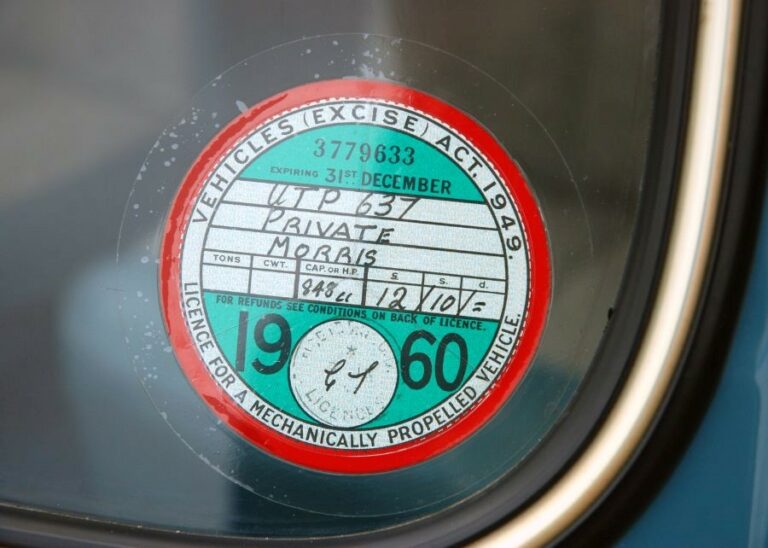Blowing exhaust
Is your car’s exhaust not sounding too healthy? Does it sound like it’s blowing a gale? Your exhaust does several jobs in your vehicle and helping your engine to run properly is one of them. If your exhaust system was to malfunction for any reason, you would know about it because it would affect your vehicle’s performance, and in many cases, it would create strange, loud noises.
How to spot an exhaust problem
First of all, if you have a healthy exhaust system, it should sound good, and as well as rerouting engine fumes, it will also provide, according to Kiwk-Fit:
- optimum fuel efficiency
- improved engine performance
- noise control and quieter running
This makes identifying a problem with your car’s exhaust system that little bit easier. Many car exhaust problems can be identified with a visual check to see if there’s any damage, such as cracks, rust, and corrosion.
However, it’s not just about how your tailpipe or exhaust is looking, you should listen out for any unusual sounds or loud exhaust noises coming from your exhaust system. If your exhaust sounds a bit funny, it’s usually down to a hole that’s developed due to corrosion or decay over time, or where two pieces of the system have separated at their joint, says Fixter. So if you do start to hear any deep or loud rumbling noises coming from your faulty exhaust, this may be a sign that something is wrong.
Why does my car sound louder than usual?
If your car is making a loud noise, and it sounds like your engine noise is louder than what it usually is, there could be an exhaust leak or a problem with parts such as the catalytic converter, which is necessary for reducing your car’s impact on the environment and for keeping exhaust fumes well out of the cabin, says Start Rescue.
As as soon as possible as you suspect that there might be an issue with your car sounding louder than it usually does, that would be the time to get it checked out. The longer you leave it if your exhaust does have an issue, the more damage it will likely cause and the more it will cost you to fix.
What are the common causes of a loud exhaust?
A corroded silence
The silencer generally tends to be the first part of the pipe in your car’s exhaust system that goes faulty, developing corrosion holes. The silencer stays relatively cold, which allows gases to condense into liquids. These liquids can cause corrosion, as can the rain and snow thrown up from the road says Fixter.
Leaking exhaust system
There’s nothing worse than exhaust leaks, but sadly, these things can happen when the joints between each component and the fixings that fasten them to the vehicle body can work loose or corrode over time. If this is the case, given that exhausts are quite difficult to access, it may be worth having a professional have a look over and repair it.
Faulty catalytic converter
A bad catalytic converter can cause some issues with noises if there is something wrong. You may hear some strange noises, vibrations or chunky rattling if there is something wrong with your converter.
Stealing catalytic converters has also been a trend too, and one that we wish would no longer continue. Given the number of precious metals that you have in your converter, it would be worth some money if someone did decide to come along and sell it. Let’s say your catalytic converter is stolen, and this is missing from your exhaust, your exhaust will probably now be blowing your exhaust pipe louder than ever.
Is it safe to drive with a noisy exhaust?
If it turns out that you do have a noisy exhaust, whether it’s hissing or rattling sound making a rattling noise, it’s not too detrimental to your vehicle’s health if the hole or leak is quite small, according to Fixter. However, if the issue with your exhaust is a bigger problem than you might have first thought, then it may not be a good idea to drive and put more pressure on your exhaust.

What is the legal noise limit for a car exhaust?
We’ve all no doubt heard a vehicle that’s flown past us with a really loud exhaust and we’ve had to look twice, but is there such a thing as an exhaust being too loud? Did you know you could be fined a penalty of £50 is your car exhaust exceeds 72 decibels?
According to The Sunday Times Driving, the legal noise limit for cars in the UK is 72 decibels for cars registered since 2016; for cars registered after 2007 and before 2016, it should be no louder than 74 decibels.
In general, if your exhaust exceeds these decibels, you have likely modified the exhaust system, specifically for a louder exhaust noise and performance. If your exhaust is faulty, which is causing it to be louder, this may be overlooked if you are in the process of getting it fixed.
What is that hissing sound?
One of the noises to listen out for with your exhaust would be any hissing noises, which could indicate a crack or leak potentially with your exhaust manifold, exhaust pipe or a leaking gasket.
If this is the case and you can hear a hissing noise, it could mean that the gasket is letting exhaust gases leak through, thus creating the sound of air hissing, says Car From Japan. Listening more closely may help you to determine exactly where the exhaust hissing noise is coming from for example, whether it’s leaking gasket out from under your vehicle, the engine bay, or maybe from the back of your vehicle. It could be a cheap fix or a nasty bill, but the quicker you find out exactly where the noise is coming from, the better.
What is that roaring noise?
Roaring noises are a telltale sign of a faulty exhaust system, and the most likely culprit, in this case, will be the silencer, according to Car From Japan. The silencer is a part of your exhaust manifold, which is most prone to problems as it can become corroded by acidic moisture and if this is the case, you’ll probably begin to notice that your exhaust will begin to make a loud roaring noise, says Kwik-Fit.
Jamjar.com makes selling your car quick, easy, and hassle-free. By comparing offers from a trusted network of UK car buyers, you get the best price without the stress of negotiating or haggling. There are no hidden fees, no obligation to sell, and the entire process is 100% online. Whether your car is nearly new or well-used, Jamjar helps you sell it fast and for a fair price—saving you time and effort.


















































